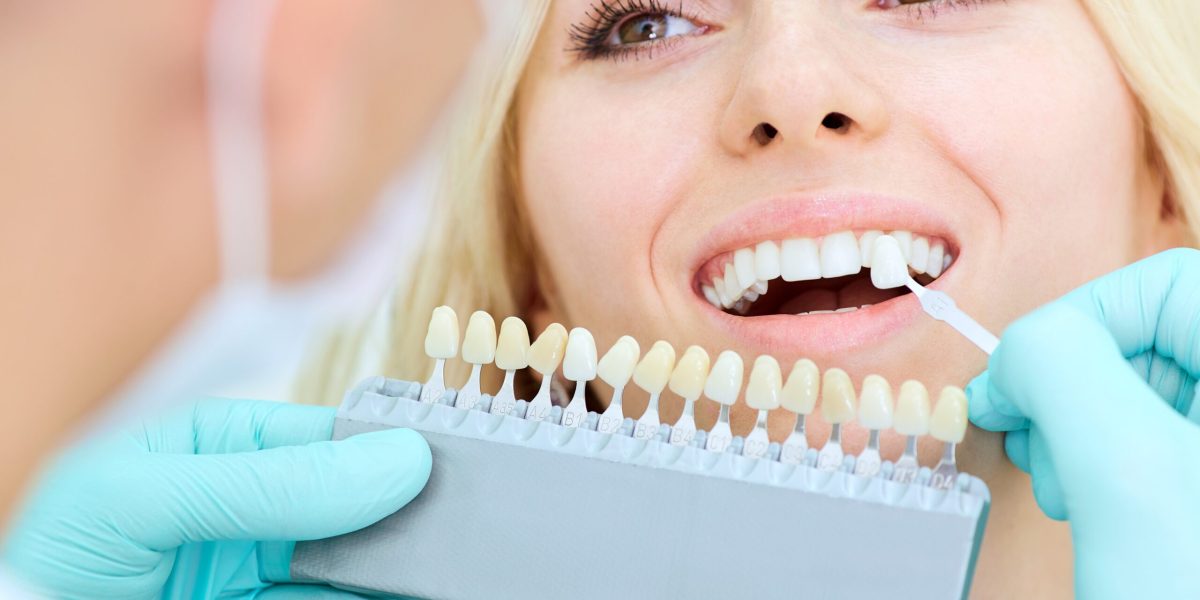A bright, confident smile is often associated with health, success, and beauty. That’s why Teeth Whitening in Dubai has become one of the most popular cosmetic dental treatments. But how exactly does it work? While whitening products promise dramatic results, understanding the science behind them helps set realistic expectations and ensures safe usage. From chemical reactions to enamel structure, here’s a breakdown of how teeth whitening really works.
Understanding Tooth Discoloration:
To comprehend whitening, you first need to understand why teeth become discolored. There are two primary types of tooth stains:
-
Extrinsic Stains: Found on the outer enamel layer due to coffee, tea, wine, tobacco, and food dyes.
-
Intrinsic Stains: Located beneath the enamel, often caused by aging, trauma, certain medications, or overexposure to fluoride.
Extrinsic stains are easier to treat with whitening products, while intrinsic stains may require more intensive treatments or cosmetic procedures.
The Role of Enamel and Dentin:
Teeth are made of multiple layers. The outermost layer, enamel, is hard and translucent. Beneath it lies dentin, which is more yellow and porous. Over time, enamel can thin due to wear, making dentin more visible and teeth appear duller.
Whitening treatments mainly target stains within enamel and just beneath it. Since enamel is porous, it allows bleaching agents to penetrate and break down stain compounds.
How Whitening Agents Work:
The two most common active ingredients in whitening products are hydrogen peroxide and carbamide peroxide. These substances act as bleaching agents through a process called oxidation.
Here’s how it works:
-
The peroxide molecules penetrate the enamel.
-
They break down into oxygen molecules.
-
These oxygen molecules react with discolored molecules, breaking their bonds.
-
This chemical reaction lightens the overall color of the tooth.
The strength of the peroxide and the duration it stays on the teeth determine the effectiveness and speed of whitening.
Professional vs. At-Home Whitening:
There are two primary options for teeth whitening: professional treatments and over-the-counter (OTC) products.
Professional Whitening (e.g., in Dubai clinics):
-
Higher concentration of peroxide (25–40%)
-
Results visible in one session
-
Done under controlled conditions
-
Often combined with heat or light to accelerate the process
At-Home Products:
-
Lower peroxide concentration (3–10%)
-
Gradual results over days or weeks
-
Includes strips, trays, pens, and toothpaste
Teeth Whitening in Dubai clinics offer customized solutions that minimize sensitivity and provide long-lasting outcomes compared to OTC products.
The Importance of pH Balance:
Whitening gels must maintain a neutral to slightly alkaline pH level to avoid enamel erosion. Acidic products may whiten but also damage the tooth surface over time.
When the pH is balanced:
-
The bleaching agents work effectively.
-
The enamel remains protected.
-
There is less risk of increased tooth sensitivity.
Always choose whitening treatments approved by dental professionals, especially for those with existing enamel wear.
Factors That Affect Whitening Results:
Every person responds differently to whitening based on various biological and lifestyle factors:
-
Tooth color: Yellow-toned teeth respond better than greyish hues.
-
Enamel thickness: Thicker enamel usually whitens better.
-
Age: Older individuals may need more sessions.
-
Diet: Continued consumption of staining foods or drinks may reverse results.
For optimal and lasting results, post-whitening care and periodic touch-ups are necessary.
Common Side Effects and Risks:
While teeth whitening is generally safe when supervised, it can come with some temporary side effects:
-
Tooth sensitivity: Often occurs during or after treatment. It usually subsides within 24–48 hours.
-
Gum irritation: Caused by contact with peroxide gel.
-
Uneven whitening: Especially if there are crowns, fillings, or veneers involved.
Tips to minimize side effects:
-
Use desensitizing toothpaste before and after treatment.
-
Avoid extremely hot or cold foods for a day or two.
-
Consult a dentist before beginning any whitening procedure.
Maintaining Your Whitened Smile:
Once you’ve achieved your desired results, maintenance is key. Your lifestyle and oral hygiene habits directly impact how long your teeth stay white.
Tips for longevity:
-
Avoid staining foods and beverages like coffee, tea, red wine, and berries.
-
Rinse your mouth or brush after meals.
-
Quit smoking or using tobacco products.
-
Schedule professional cleanings regularly.
-
Use whitening toothpaste occasionally for maintenance.
By following a good maintenance routine, you can extend the effects of Teeth Whitening in Dubai for many months or even years.
Alternatives to Traditional Whitening:
Not all stains can be treated with peroxide-based products. For such cases, cosmetic dentistry offers alternative options:
-
Veneers: Thin shells that cover the front surface of teeth.
-
Bonding: Tooth-colored resin applied to discolored areas.
-
Microabrasion: Removes superficial enamel stains mechanically.
These methods can address discoloration not responsive to traditional bleaching.
Who Should Avoid Teeth Whitening:
Whitening is not suitable for everyone. Certain conditions or dental restorations can limit effectiveness or cause complications.
Avoid whitening if:
-
You’re pregnant or breastfeeding.
-
You have untreated cavities or gum disease.
-
You have dental restorations like crowns, veneers, or bridges.
-
You’re under the age of 16 (due to sensitivity issues).
Always consult your dentist before starting any whitening regimen to determine the safest and most effective method for you.
Final Thoughts:
Teeth whitening isn’t just a cosmetic luxury—it’s a scientifically backed process that, when done properly, can safely enhance your smile. Whether you choose a professional treatment or an at-home option, understanding how it works helps you set the right expectations and avoid potential pitfalls. If you’re considering Teeth Whitening in Dubai, consult with a qualified dentist to get personalized recommendations tailored to your dental health and aesthetic goals.












